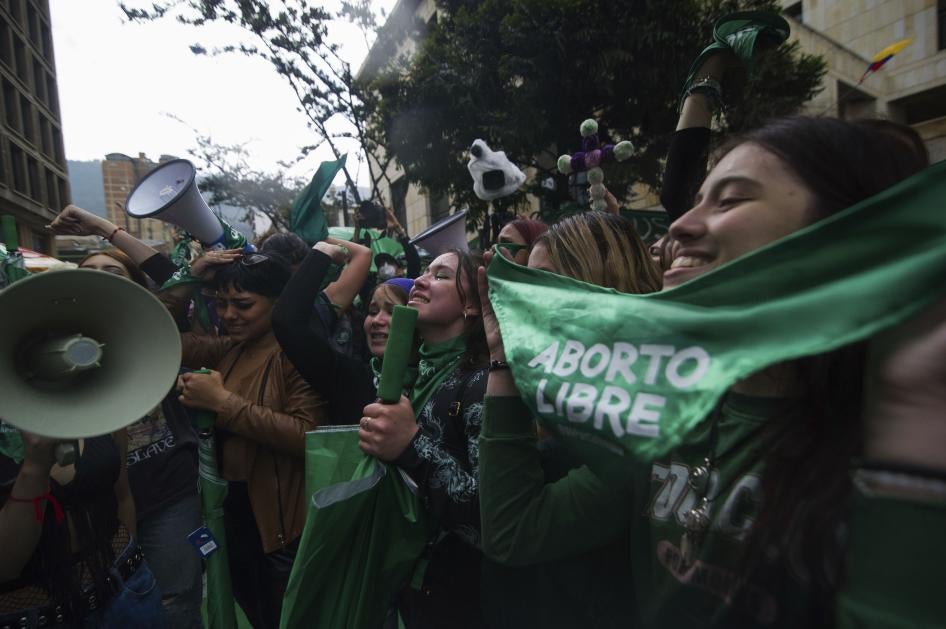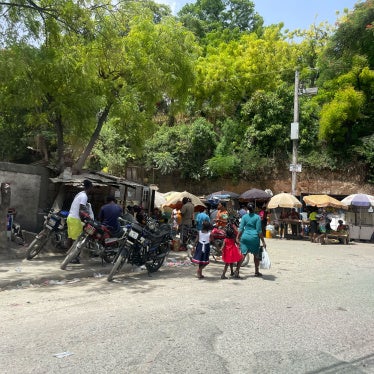Colombia has attracted a lot of attention in the news over the past year for being the country that offers the best protection for abortion rights in Latin America. In February 2022 we celebrated the landmark ruling of Colombia’s Constitutional Court, which decriminalized abortion on all grounds up to week 24 of pregnancy and ordered health care providers to guarantee access to abortion services. The Court also confirmed that abortion will continue to be legal after 24 weeks where the pregnancy poses a risk to the health or life of the pregnant person, is non-viable or is the result of rape. These exceptions were introduced by the Constitutional Court in 2006.
But now the topic of abortion rights is back in the headlines in Colombia and not for the right reasons. The past few days have seen the spread of confusion and misinformation about recent rulings that could pose a threat to access to abortion. The Fourth Review Chamber of the Constitutional Court recently ruled on two tutela actions (T-158 from 2023 and T-430 from 2022) in a manner which could undermine full access to abortion services, contradicting last year’s ruling of the Full Chamber.
In two cases brought by indigenous women seeking abortions within the health system, the Fourth Chamber of the Court stated that the General System of Social Security in Health "does not have an obligation" to perform an abortion before week 24. The judges of the Chamber maintain that there is a “lack of legal regulation” surrounding the issue, despite the fact that on January 12 of this year the Ministry of Health and Social Protection issued a public policy, consistent with the Court’s ruling of 2022, establishing the procedure that healthcare entities must follow to ensure that anyone requesting an abortion has access to abortion services. The ruling of the Fourth Chamber disregards this policy by arguing that the facts that prompted one of the tutela actions took place prior to the date when the public policy was made by the Ministry of Health.
The Chamber’s decisions would appear to leave it to the discretion of healthcare workers to grant or deny access to abortion services if the healthcare entities justify this "with good and sufficient cause". Under these new conditions, performing abortions before week 24 could become restricted. Each abortion may trigger a constitutional debate that, in turn, will result in delays, litigation, suffering and possible denial of access for those seeking abortion services. Needless to say, when it comes to abortion, time is of the essence and delays cause damage and repercussions that cannot be remedied. As the Constitutional Court’s own case law has recognized, barriers to abortion inhibit the exercise of human rights. Under the pretext of “weighing up” rights, there is once again a risk of women and people able to bear children being forced to carry unwanted pregnancies to term.
Lastly, this ruling is concerning because the Chamber does not recognize that denying an abortion violates the human rights of women, girls and other pregnant people. The ruling is not only difficult to reconcile with the constitutional principles recognized by the Full Chamber, but would also violate international obligations to respect, protect and guarantee human rights to life, health and freedom of conscience, and reproductive autonomy.
The tutela rulings could represent a setback in safeguarding internationally recognized human rights for women, girls and other people able to bear children, and could also affect legal certainty in the provision of abortion services. Colombia’s Constitutional Court has been a staunch advocate of human rights, so it would be contradictory if these rulings were to turn the clock back on rights that the Court itself has already recognized. Last year’s ruling decriminalizing abortion is still in force, which means that abortions must therefore always be performed safely and be available to everyone who decides to have one before week 24.











